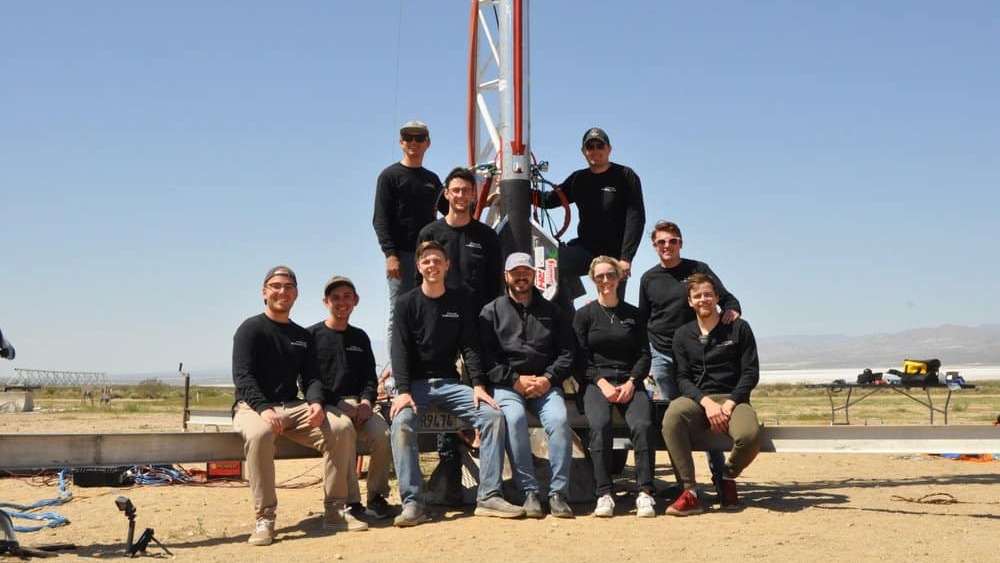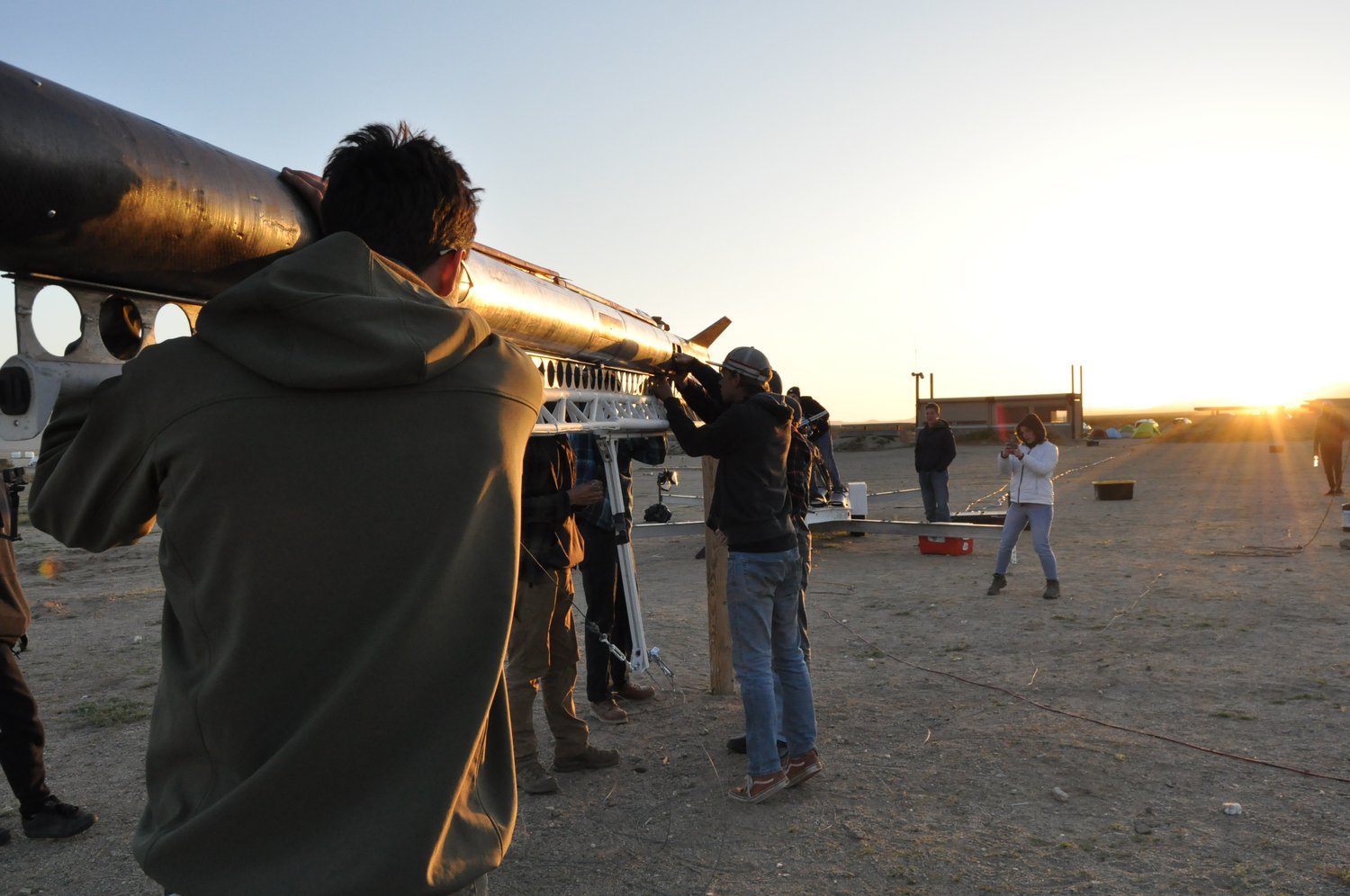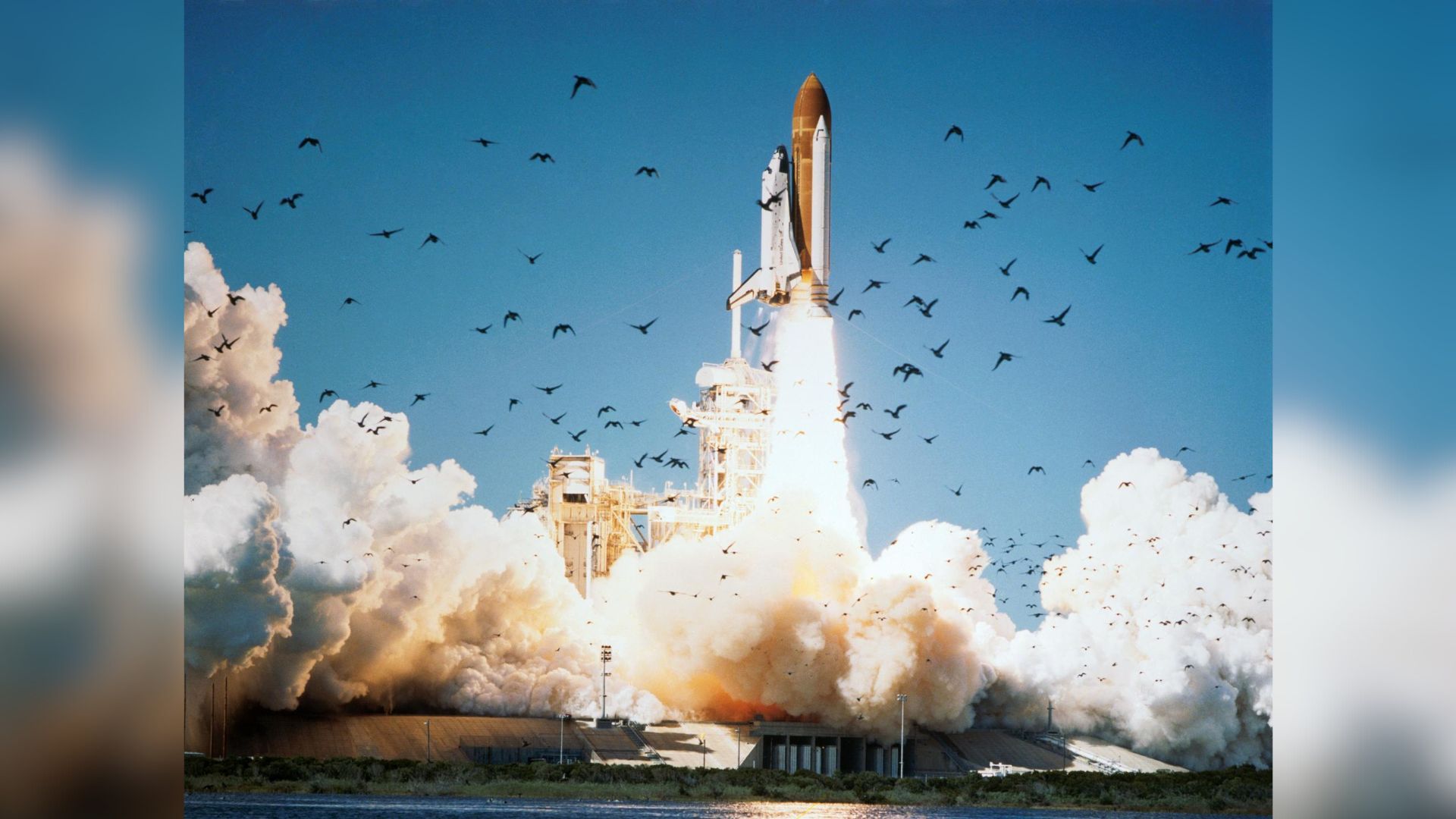Record-breaking amateur rocket soars higher than Mt. Everest
'I fell to my knees, sobbing, from witnessing such an incredible feat.'

An amateur rocket set a new record last month, soaring far higher than Mount Everest.
On April 16, students from Embry-Riddle Aeronautical University launched a small rocket to a maximum altitude of 47,732 feet (14,548 meters) — about 1.6 times higher than Everest, which stands 29,032 feet (8,849 m) tall. The feat also more than doubled the previous record set by U.S. undergraduate and collegiate amateurs, which was 22,000 feet (6,706 m).
"I fell to my knees, sobbing, from witnessing such an incredible feat," student Dalton Songer said in a May 11 statement, evoking the 4,000 hours of work that went into the construction, testing and launch.
"Everyone was celebrating in a giant group hug," Songer said. "That moment was special — something that only happens when a dedicated group of individuals come together and make something incredible happen against all odds."
Related: The history of rockets
The launch, from the Mojave Desert in California, isn't the highest ever by amateurs, as other efforts have even reached what is considered space itself (roughly 62 miles, or 100 kilometers). For example, an undergraduate team from the University of Southern California sent their Traveler IV booster beyond the Kármán line in 2019, which likely set a record for students overall, officials said at the time.
Still, in their category (undergraduate liquid-fueled rocket launch), the Embry-Riddle students shone. Their rocket — named Deneb, after a star in the constellation Cygnus — broke the sound barrier easily, reaching Mach 1.5 (1,150 mph or 1,850 kph) during a 26.1-second flight. It took three scrubbed launch attempts to get there, forcing the entire team to camp for an extra night in the desert.
Breaking space news, the latest updates on rocket launches, skywatching events and more!
Songer said the launch was worth it. The students, from Embry-Riddle's Prescott, Arizona campus, sheltered in a bunker for the launch but could still see it: "Watching Deneb take off was the most exhilarating moment of my life," Songer said. "We all ran out of the bunker to watch as Deneb burned further and further into the morning sky. It was breathtaking."
Several graduating students from the team have already been accepted for full-time jobs at locations like SpaceX, Blue Origin and Firefly Aerospace, said Elliott Bryner, Embry-Riddle's director of the propulsion laboratory and rocket test complex. "I have been working with this group of students for the past four years, and they are incredible engineers," Bryner said.
The team, dubbed the Cygnus Suborbitals, began their work during a a senior capstone propulsion design course co-taught by Daniel White and Jonathan Adams. They also formed part of the Rocket Development Lab (RDL), which is a student organization promoting rocketry and hands-on experience at Embry-Riddle.
Other students contributed 3,000 hours to the project through the RDL, and the effort also received donations from companies like Firefly and Lockheed Martin. Deneb followed from a predecessor rocket called Altair, which was delayed due to the pandemic and then exploded during an October 2022 launch attempt.
"We learned a lot from that rocket," said Zoe Brand, a team member who tested Deneb's engine, said in the same statement. "Altair was very heavy. So, we deliberately focused on making our rocket lighter by integrating the propellant tanks into the structural rigidity of the rocket."
Follow us on Twitter @Spacedotcom or Facebook.

Elizabeth Howell (she/her), Ph.D., was a staff writer in the spaceflight channel between 2022 and 2024 specializing in Canadian space news. She was contributing writer for Space.com for 10 years from 2012 to 2024. Elizabeth's reporting includes multiple exclusives with the White House, leading world coverage about a lost-and-found space tomato on the International Space Station, witnessing five human spaceflight launches on two continents, flying parabolic, working inside a spacesuit, and participating in a simulated Mars mission. Her latest book, "Why Am I Taller?" (ECW Press, 2022) is co-written with astronaut Dave Williams.

